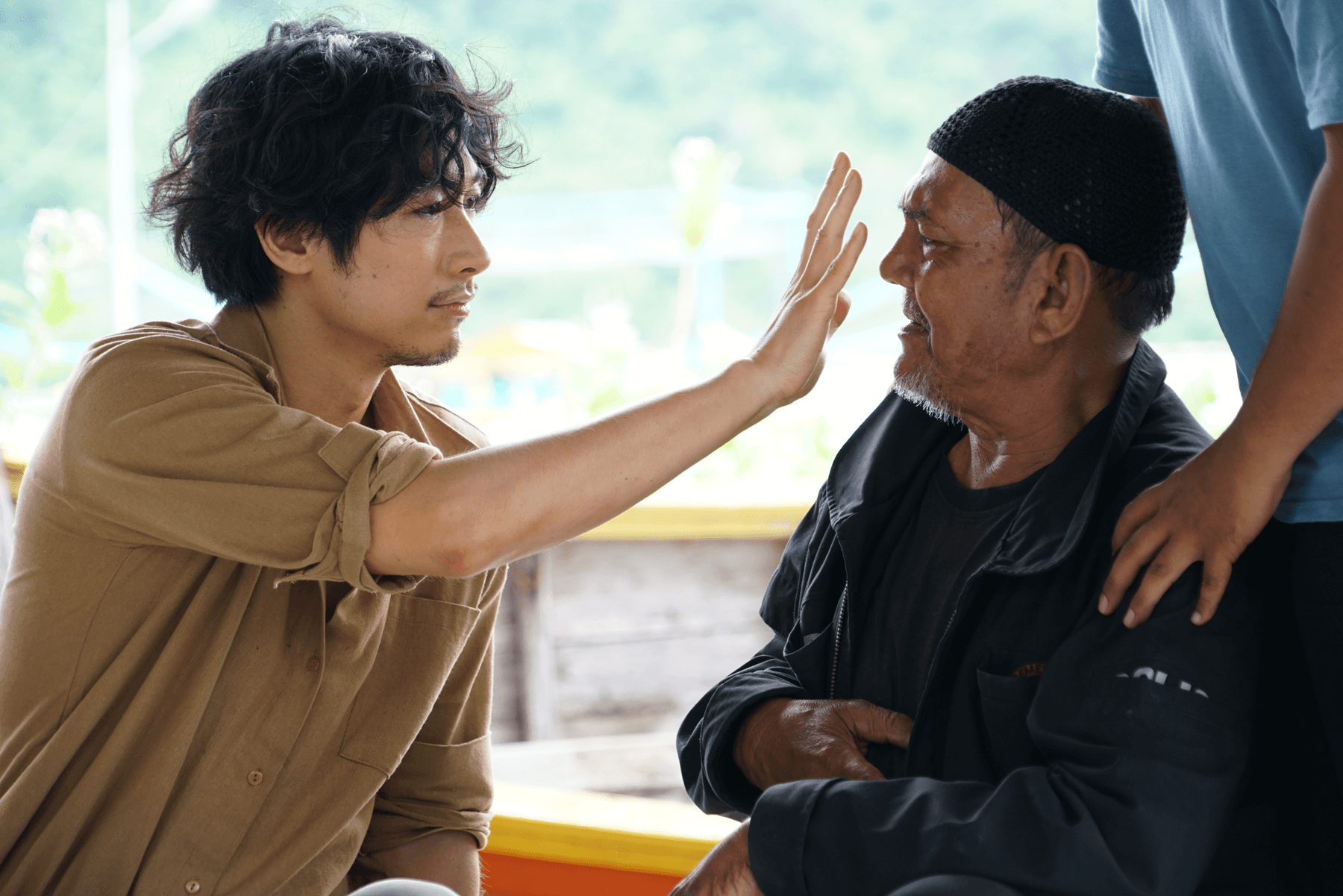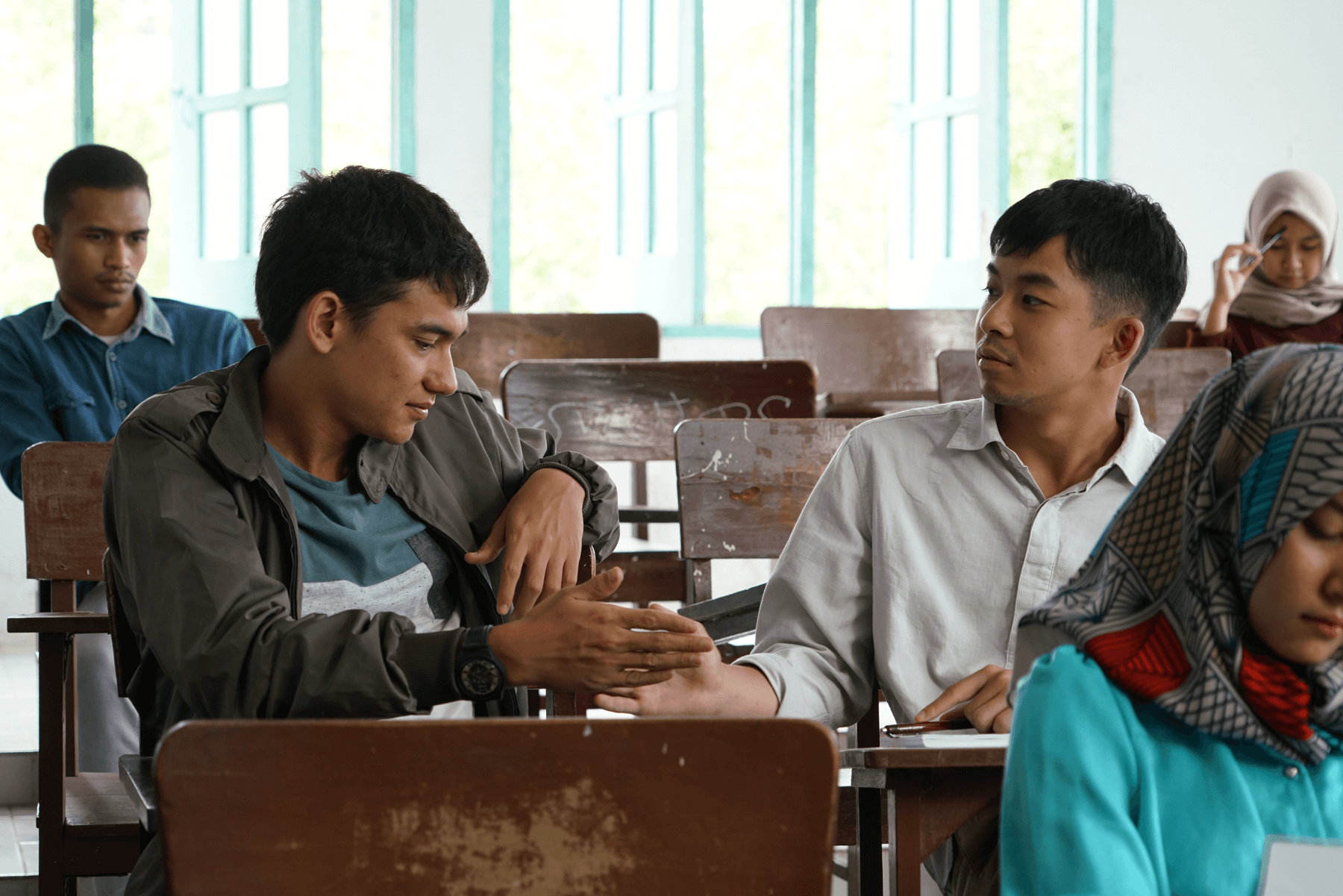![Fukada style of directing and its relationship with the novel version. Director Koji Fukada “The Man from the Sea” ~Part 2~ [Director's Interview Vol.3.2]](https://cinemore.jp/images/63dc930ba0bd4e95d8c91884dc57c425ffebba662ebd51813380fc5f428dd379.png)
Fukada style of directing and its relationship with the novel version. Director Koji Fukada “The Man from the Sea” ~Part 2~ [Director's Interview Vol.3.2]
A long interview with director Koji Fukada, who shot his latest film ``The Man from the Sea'' entirely on location in Indonesia, talking about his intentions throughout the work and its relationship with the novel version. We will bring you the second part. *Click here for the first part
Index
- “Fukada style” workshop starting with Lumiere
- Costume concept depicting cultural differences and character changes
- The difference between a “movie” and a “novel” drawn by the director
“Fukada style” workshop starting with Lumiere
Q: This time, you directed actors with different languages and nationalities, but did you try to unify the tone of their performances?
Fukada: There is a book called `` The Real Way of Making Movies '' written by a Scottish film director named Alexander Mackendrick. It's like a textbook, an introductory book for movie directors. There is an item called ``actor's play'', but that section is very thin. In summary, I'm telling you to believe in the actors. It is said that the worst kind of production is for a movie director to come into a theater and perform his own movements. I'm saying that you have to believe in the actors and cut out what comes out of them.
However, in the case of the United States, for example, both actors and movie directors share the same value in the form of a certain method that ``this kind of acting is good acting.'' Based on that premise, we were able to cast reliable actors. Unfortunately, I think the situation is different in Japan, but the quality of acting varies widely in Japan.
It is rare among advanced film countries that there is no national film school or drama school, but in Japan there is no educational institution for film actors, and there is no methodology. Different theater companies teach different things, and different companies and companies have different values. I think it's good for each theater company to create its own world view based on its own values, but in the case of movies, we have to gather actors from all over the world. As expected, things will be quite different there. Somehow, we are getting through this with our own individual resilience. I think that the American style of believing in the actors, or creating a proper ensemble of actors, tends to make the disparity in the quality of the plays more obvious in Japan.

Q: Do you have any methods that you have practiced as a director to standardize the quality of acting?
Fukada: That's true. However, I have no choice but to do what I can, and the first thing to do is write the script. I thought that if the dialogue in the script was physiologically appropriate, and if the words could be used properly, it would work to some extent even if translated. I believe that an actor's directing basically begins with the script, so I take great care to first write lines that are easy for the actors to say in the script.
I don't know what the correct answer is, but this time I held a workshop first. We ask Japanese actors and Indonesian actors to watch several movies and talk about how their acting in movies has changed.
Q: Is it like a film history lecture?
Fukada: It's already film history. The route I have always decided is to start with Lumière, watch `` Grand Hotel '' (1932), which in a sense is a classic Hollywood play, then watch Bresson, and finally watch Kiarostami's `` Close Up. '' (1990). I try to start filming after having the actors share with me the evolution of acting in movies and what kind of acting they think is good.
Also, I tell them that I want them to communicate properly with the actors in front of them. It's good to create your own role, but don't decide too much about how you're going to act; just communicate with the actors in front of the camera in the same way you would in a normal waiting room or off-camera. I want you to take it. I believe that if you can do that, you should be able to get up to 70 points, and I always ask actors to do that as well.
Taiga-kun always puts this into practice comfortably. The reason why I always choose Taiga-kun is because he has good taste as an actor and the direction of his acting matches my tastes. He's a very good actor, but he's also very good at receiving and reacting to other people's plays. He reacted well to the actions of native Indonesians, and in the scene with Adipati Dolken, who plays Chris, he really communicated as if two young Indonesian men were having fun. think. Even from an Indonesian perspective, it seems real, and even more than words, I think small gestures and movements are more natural.
Q: Are the American-style hand Signs exchanged by Takashi and Chris popular among young people there?
Fukada: That wasn't in the script. Adipati-kun suggested it to me, so I said, ``Sure, please do it.'' It seems to be doing well. Even in the university scene, Advadi-kun said, ``Can we make it longer than we originally thought?'' so we ended up making that really long hand Signs. Overall, I expected it to be a little confusing since it was a work that transcended language, but I think it turned out better than I expected.

Q: Junko Abe is by no means a native speaker, but I also liked how she spoke practical English.
Fukada: Mr. Abe has the experience of studying abroad in America for a year. That's pretty good for a Japanese university student. That's why I decided to take the English department (lol).
Costume concept depicting cultural differences and character changes

